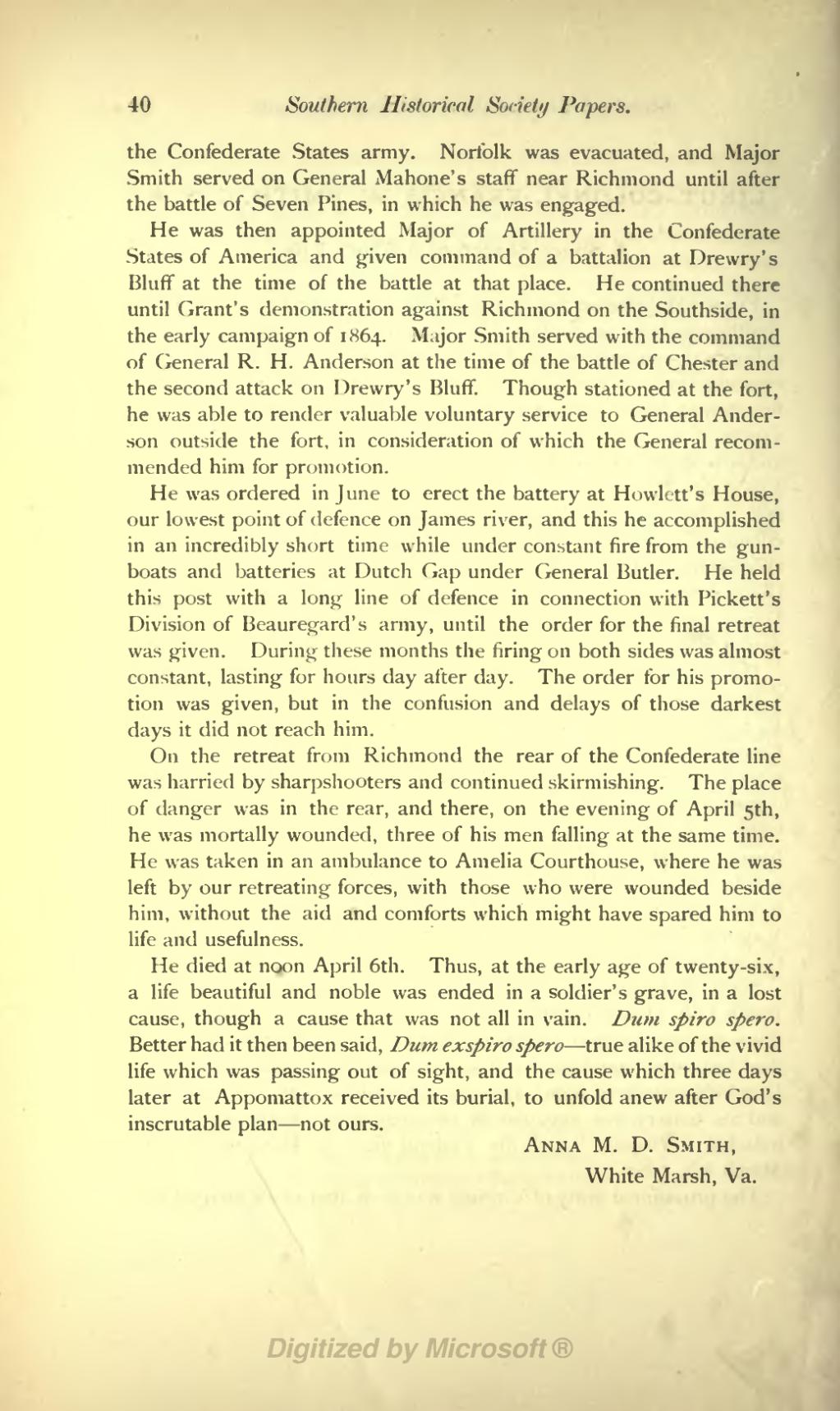the Confederate States army. Norfolk was evacuated, and Major Smith served on General Mahone's staff near Richmond until after the battle of Seven Pines, in which he was engaged.
He was then appointed Major of Artillery in the Confederate States of America and given command of a battalion at Drewry's Bluff at the time of the battle at that place. He continued there until Grant's demonstration against Richmond on the Southside, in the early campaign of 1864. Major Smith served with the command of General R. H. Anderson at the time of the battle of Chester and the second attack on Drewry's Bluff. Though stationed at the fort, he was able to render valuable voluntary service to General Anderson outside the fort, in consideration of which the General recommended him for promotion.
He was ordered in June to erect the battery at Howlett's House, our lowest point of defence on James river, and this he accomplished in an incredibly short time while under constant fire from the gunboats and batteries at Dutch Gap under General Butler. He held this post with a long line of defence in connection with Pickett's Division of Beauregard's army, until the order for the final retreat was given. During these months the firing on both sides was almost constant, lasting for hours day after day. The order for his promotion was given, but in the confusion and delays of those darkest days it did not reach him.
On the retreat from Richmond the rear of the Confederate line was harried by sharpshooters and continued skirmishing. The place of danger was in the rear, and there, on the evening of April 5th, he was mortally wounded, three of his men falling at the same time. He was taken in an ambulance to Amelia Courthouse, where he was left by our retreating forces, with those who were wounded beside him, without the aid and comforts which might have spared him to life and usefulness.
He died at noon April 6th. Thus, at the early age of twenty-six, a life beautiful and noble was ended in a soldier's grave, in a lost cause, though a cause that was not all in vain. Dum spiro spero. Better had it then been said, Dum exspiro spero—true alike of the vivid life which was passing out of sight, and the cause which three days later at Appomattox received its burial, to unfold anew after God's inscrutable plan—not ours.
Anna M. D. Smith,
White Marsh, Va.
